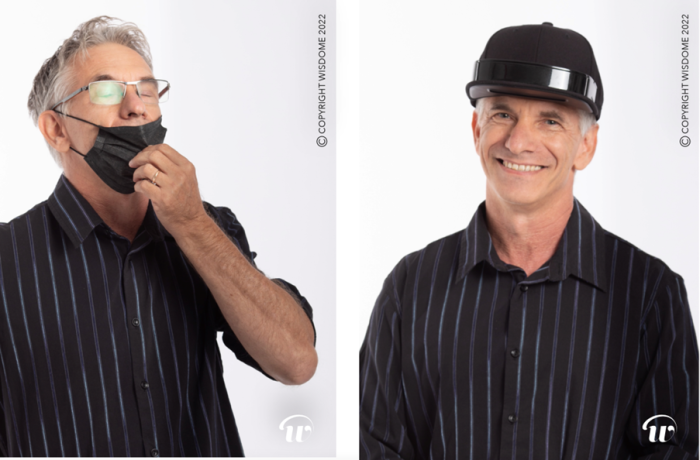Regular medical masks, although effective in stopping the spread of diseases, make interpersonal communication difficult, especially recognizing faces and emotions. They have therefore been found in studies to have negative psychological effects. Other studies have shown that they also interfere with attention, concentration and patience, and cause a dramatic increase in plastic waste.
Prof. Emeritus Moshe Shoham and Prof. David Greenblatt, head of the Flow Control Lab, tackled these challenges with an entirely new solution: an ‘air screen,’ a stream of air activated from a lightweight unit with a filter and mounted on a visor. The air screen protects the eyes, nose and mouth without making communication difficult. It is reusable and nonpolluting. A study conducted in Prof. Greenblatt’s lab demonstrated the effectiveness of the air screen in effectively blocking aerosol produced during normal verbal communication, as well as aerosol generated by coughing or sneezing.
David Keisar and Anan Garzuzi, students in the energy program, made a significant contribution to the experiments and development of physics-based models of the air screen. The Technion granted a license for the technology to startup Wisdome Wearables, which has already begun the process of commercializing the product.
Photo: A demonstration of the new mask courtesy of Wisdome Wearables Ltd.







